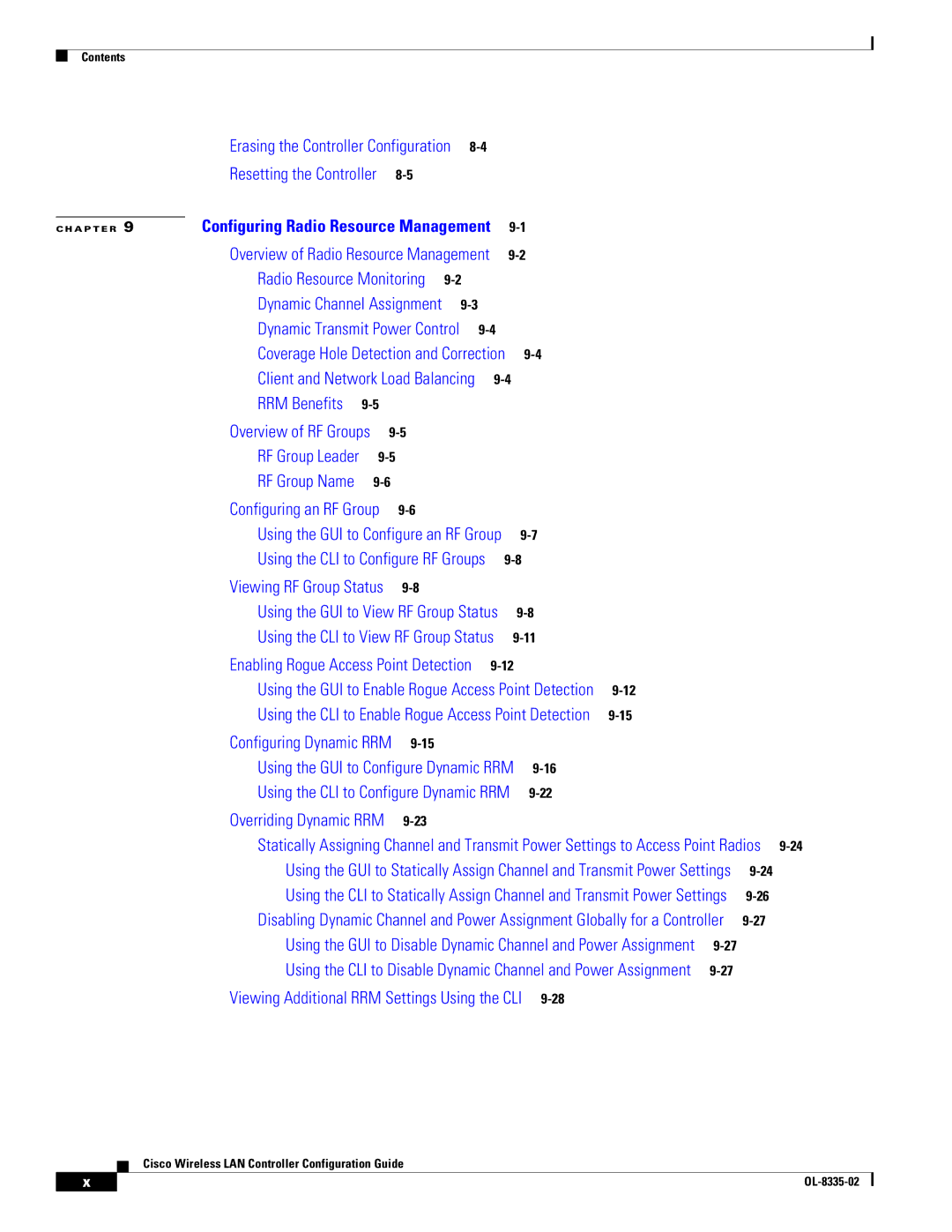
Contents
| Erasing the Controller Configuration |
|
|
|
| |||
| Resetting the Controller |
|
|
|
|
| ||
| Configuring Radio Resource Management |
|
|
| ||||
C H A P T E R 9 |
|
| ||||||
| Overview of Radio Resource Management |
|
| |||||
| Radio Resource Monitoring |
|
|
|
| |||
| Dynamic Channel Assignment |
|
|
|
| |||
| Dynamic Transmit Power Control |
|
|
| ||||
| Coverage Hole Detection and Correction |
|
| |||||
| Client and Network Load Balancing |
|
| |||||
| RRM Benefits |
|
|
|
|
|
| |
| Overview of RF Groups |
|
|
|
|
| ||
| RF Group Leader |
|
|
|
|
|
| |
| RF Group Name |
|
|
|
|
|
| |
| Configuring an RF Group |
|
|
|
|
| ||
| Using the GUI to Configure an RF Group |
|
| |||||
| Using the CLI to Configure RF Groups |
| ||||||
| Viewing RF Group Status |
|
|
|
|
| ||
| Using the GUI to View RF Group Status |
|
| |||||
| Using the CLI to View RF Group Status |
| ||||||
| Enabling Rogue Access Point Detection |
|
| |||||
| Using the GUI to Enable Rogue Access Point Detection | |||||||
| Using the CLI to Enable Rogue Access Point Detection | |||||||
| Configuring Dynamic RRM |
|
|
|
|
| ||
| Using the GUI to Configure Dynamic RRM |
| ||||||
| Using the CLI to Configure Dynamic RRM |
| ||||||
| Overriding Dynamic RRM |
|
|
|
|
| ||
Statically Assigning Channel and Transmit Power Settings to Access Point Radios
Using the GUI to Statically Assign Channel and Transmit Power Settings
Using the CLI to Statically Assign Channel and Transmit Power Settings
Disabling Dynamic Channel and Power Assignment Globally for a Controller
Using the GUI to Disable Dynamic Channel and Power Assignment
Using the CLI to Disable Dynamic Channel and Power Assignment
Viewing Additional RRM Settings Using the CLI
Cisco Wireless LAN Controller Configuration Guide
| x |
| |
|
|
